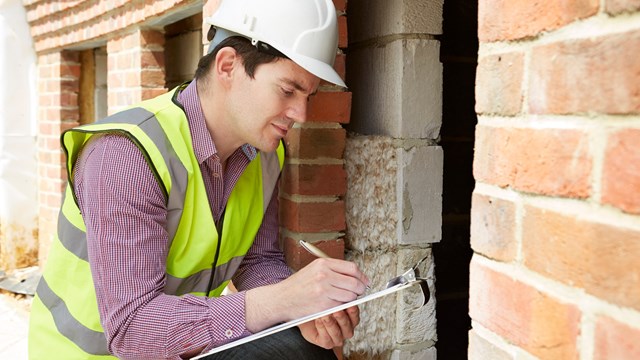Not every condominium or homeowners’ association is going to run afoul of the law—the happy truth is that litigation and legal trouble are relatively rare occurrences. But even the most upstanding board of trustees in New England must navigate a labyrinth of community association rules in order to best serve its ownership, and the odds are that its trusty group of volunteers will consist of few, if any, qualified legal professionals.
So what to do in order to ensure that an association’s business remains on the up-and-up? Hiring one of the aforementioned legal eagles would be a good start, sure, but how best do you ascertain which attorney or firm is ideal to guide your association right and true? Turns out, choosing a legal pro isn’t so different from choosing any other kind of service provider your HOA might need—even if the stakes are somewhat higher.
Do Your Due Diligence
The first step in finding that attorney pearl in the legal oyster bed is knowing where to look, and whom to vet. Searching for professionals becomes infinitely easier these days with the help of the Internet to conduct an online search.
“Attorneys are much like doctors in that we have specialties,” says Cameron Pease, a partner with the law firm of Goldman & Pease in Needham, Massachusetts. “Just because you’re a lawyer doesn’t mean that you know tax law, nor should tax lawyers know anything about condo law. You can figure out pretty quickly which firms specialize in the area of your need by doing some digging on the Internet. Firms like ours are out there marketing and writing articles on various issues: relevant changes in association law, or whatever big case came down in the state within the last few weeks.”
“And property managers pass along referrals,” Pease continues. “They know who the good lawyers are. A lot of finding an attorney is based on word of mouth—talking to different people in the industry. And then there are different trade organizations: CAI (Community Associations Institute), for example. These can tell you who the good practicing attorneys in your area are.”
Once you’ve narrowed your search down to a field of specialists, it helps to know what criteria makes one stand out from the pack. Fortunately, Frank Lombardi, a partner with the law firm of Goodman, Shapiro & Lombardi, LLC, which has offices in both Massachusetts and Rhode Island, has a handy and thorough checklist:
“You want to interview people who have at least five years’ experience with dispute resolution between board members and unit owners and have actually conducted covenant enforcement hearings; people who have actually drafted documents and thus know how to interpret same; attorneys familiar with loan documentation; who both attend and provide seminars delving into the latest developments in association law, as well as the most relevant cases; who have litigated cases involving drafted complaints; who have been to depositions, and have gone to motion practices where they've presented arguments, their opponents have presented arguments and judges have made decisions; attorneys who are familiar with financial issues involving the condominium, and who have been to association meetings and are familiar with the voting process.”
Aside from expertise in the specific area of condominium law, an attorney needs to be willing to put in the time and effort that s necessary to forging a rewarding working relationship with an association. “Practicing community association law is different from other areas of expertise,” says Jennifer Loheac, a shareholder attorney with Becker & Poliakoff, a commercial law firm with offices up and down the East Coast. “Our relationship doesn’t end when a personal injury payment is made or a couple finally arranges child custody. A good community association lawyer will recognize that the client relationship with an association is the single most important element to a successful experience for all parties involved. Community association lawyers counsel people where they live, and this often involves understanding a cross-section of law: property, contract, insurance, employment, environmental, constitutional, etc. Lawyers also have to be adept at balancing legal answers with practical solutions for everyday living. No community association will benefit from a lawyer sitting behind her desk offering high-minded legal opinions in a vacuum.”
Action v. Reaction
While all of the above information is imperative for an association to keep in mind while on the attorney hunt, you can be forgiven for thinking that it’s a lot to stay atop of. Fortunately, the onus is not entirely on an association to find an attorney, as the most legal of eagles tend to network proactively, and may well find the association.
“We hold what we refer to as a ‘bootcamp’ for new trustees,” offers Pease. “It’s basically a free seminar wherein we teach trustees—who, I should reiterate, are volunteers, and rarely work in either real estate or law by trade—the basics. Hopefully, via these events, they’ll get to know us, learn what we represent as a firm, and leave feeling validated. And then we pen articles whenever we can, and take booths at trade shows throughout the year—either real estate-related, or more specifically, condo-related expos wherein people can approach us and ask frank legal queries.”
Loheac seconds the importance of expo participation. “Whether it’s a CAI event or New England Condominium, it’s the best opportunity for boards to meet most of the law firms that devote a practice group to community associations and ask direct questions of attorneys present. The more boards educate their trustees, the better informed each trustee will be in choosing an attorney.”
Danger Signs
Of course, for every signal that an attorney may fit your association like a glove, there are let’s say, feelings or intuitions, where you can sense that this professional is the wrong fit. It’s just as important to know what makes an attorney very bad as it is to know what makes them very good.
Some early red flags that Lombardi would identify include a lack of transparency with respect to the attorney’s methods, and an early indicator of potential conflict down the line with other personalities, be they particular board members or property managers. “Be on guard if they don’t disclose fee arrangements, how things are going to be paid going forth, whether they will require a flat fee or a retainer. Or, if they lack an even basic knowledge of the specificities inherent in condominium law—how to collect an assessment, for example. If they ask you for the wrong information, they don’t get back to you within an agreed-upon time frame, or have a plan for emergencies, that’s a problem.”
And Loheac simplifies things with a specific list for identifying attorneys to avoid:: the ‘one-man show’ attorney who professes an ability to do it all: general counsel, collections and litigation; a lack of evidence of education/experience specifically dealing with community association law; unrealistically low fees for unlimited services; attorneys who aggressively look to litigate on behalf of an association rather than attempt settlement; attorneys who are unwilling to work well with other colleagues in the industry, be they management, accountants, engineers; and attorneys who talk more about themselves in the initial interview than about you, the client, and your community.
Pay Day
The one thing that any attorney a board hires—be they F. Lee Bailey or a less experienced junior associate—will possess is that expectation that they will be paid for services rendered. And payment should be forthcoming in a timely fashion. However, as hinted at by Lombardi above, there are different ways by which an attorney may bill an association, and the chosen method may be an indicator as to whether the attorney is a good fit.
“Typically, when we get hired by a board, there will be a written fee agreement,” explains Pease. “Sometimes that may be for a very limited and specific role, like a piece of litigation, but more often than not it’s for general representation, for which we usually charge hourly. We may talk to the board in advance about its budget. If it’s the Ritz Carlton, they’ll probably want partner-level people working on the account, but if it’s a three-unit condo, they’re more likely to be budget-conscious and thus want someone at the associate level who can do things more affordably. Where I hear a lot of complaints from associations is that they got lost in a big firm with a great name because they were passed along to lower-level associates.”
Some associations opt to keep their attorneys to an hourly billing and will only call them as-needed, a method Loheac does not condone. “This approach is not generally recommended for mid-size and large communities because there are so many issues that arise, and it’s important for the lawyer to be present and available to the boards frequently, including at association meetings,” she says. “It is difficult for attorneys to advise clients when they may not even know of the issue, and a client did not even recognize that there was any problem.“
In the end, according to Loheac, “the most successful boards enter into a relationship with their professionals and regularly rely on them for advice both legal and practical.”
Michael Odenthal is a staff writer for New England Condominium and other publications.







Leave a Comment